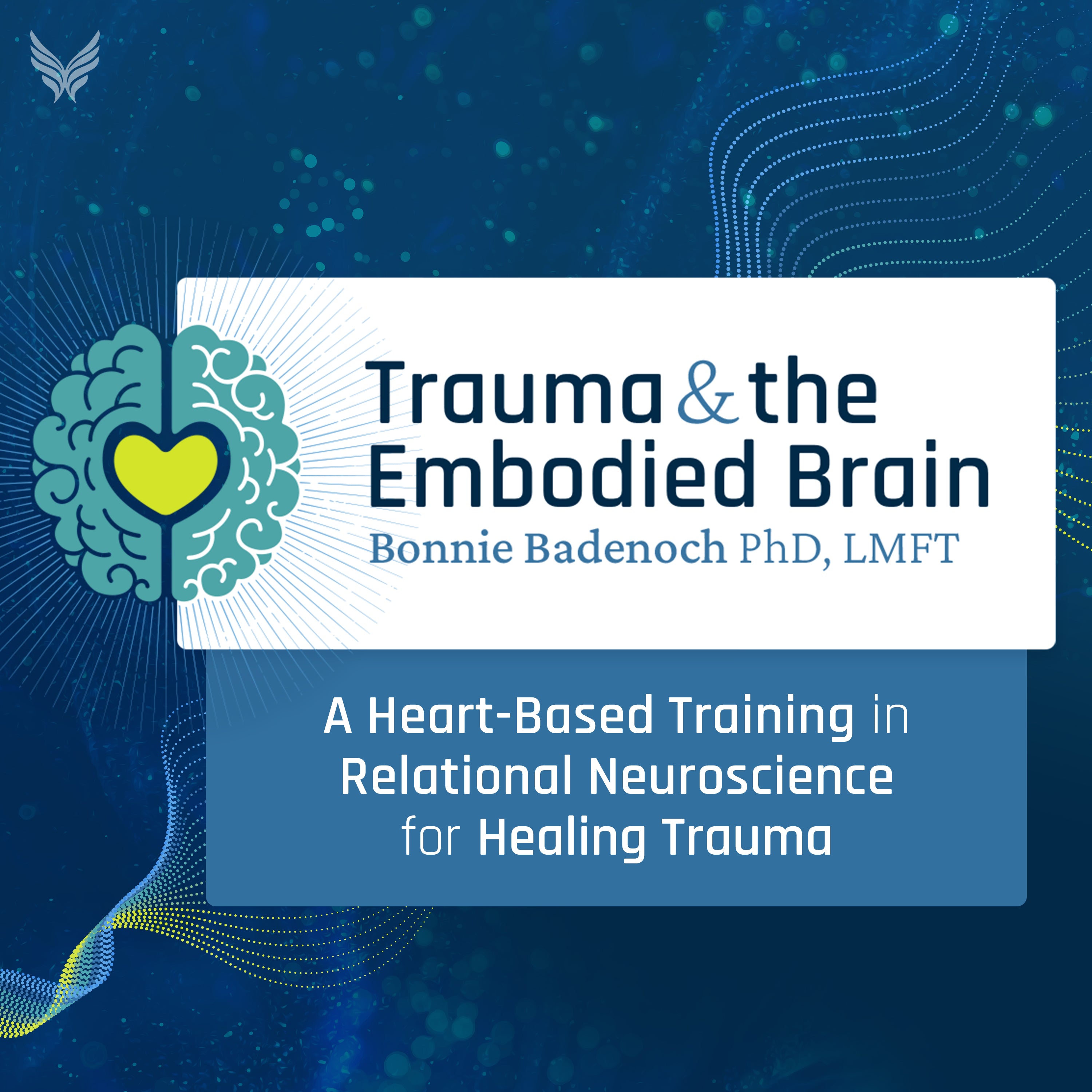Trauma and the Embodied Brain
If you’re a therapist who works with trauma survivors, you’re probably familiar with the many new and evolving modalities available. Regardless of what models and techniques we use, one core dimension of healing is crucial:
The deep, physiologically embodied relationship we hold with our clients.
Why does this matter? Research in the field of relational neuroscience offers this intriguing answer:
Trauma may be less about what happened to us and much more about who is there to support us—before, during, and after the overwhelming experience.
If this connection-centered view of healing trauma rings true for you, the good news is that there is so much more to learn from this central insight.
Bonnie Badenoch, PhD, LMFT, created this program for therapists, caregivers, and others who want to support their clients or loved ones in a deeper and more connected way—and to strengthen themselves while learning how.
Join her to explore:
- Foundational principles of relational neuroscience and interpersonal neurobiology
- How trauma embeds in the body—our muscles, skin, heart, “belly brain,” and other systems
- Explicit and implicit memory—research and principles for working with traumatic experiences, from childhood to adulthood
- Practices for listening to and understanding sensation, the body’s native language
- Creating optimal conditions for healing through trust, safety, and nonjudgmental presence
- The left and right brain hemispheres—their complementary roles in the therapist-client relationship
- How to engage our own inner healing to provide optimal support for others, and much more
Throughout this training experience, Bonnie brings equal emphasis to both the informational knowledge of the course and your emotional and body-based experience of the teachings—two complementary elements that therapists need to support their clients.
If you find this approach appealing, we hope you’ll join us.











